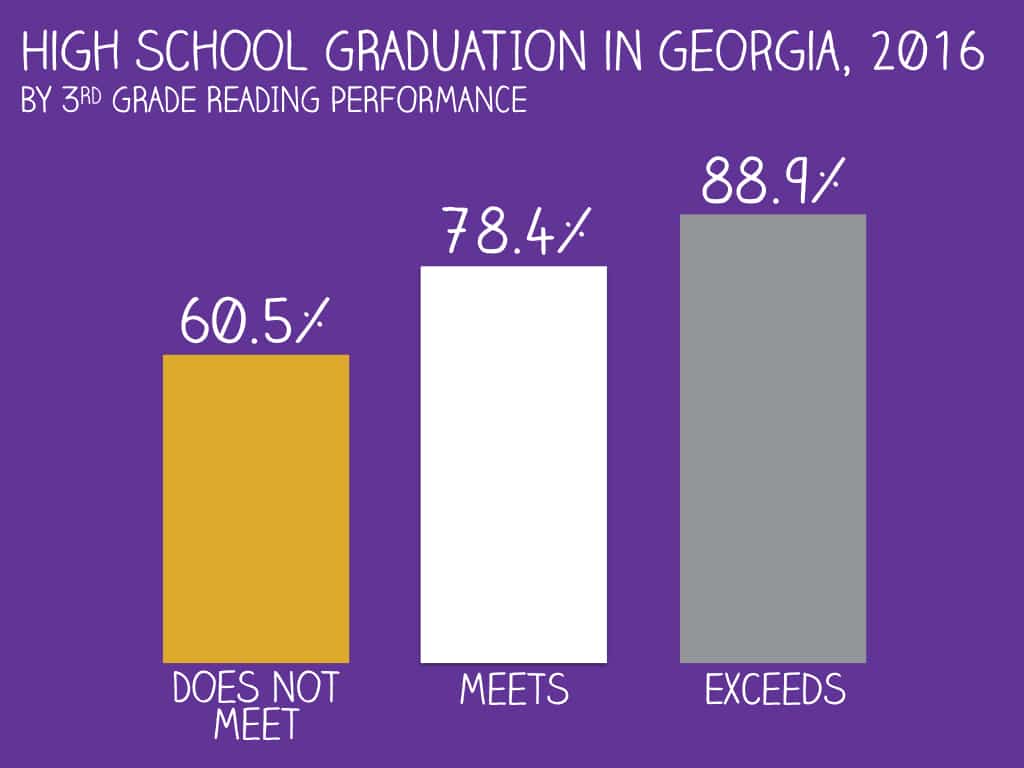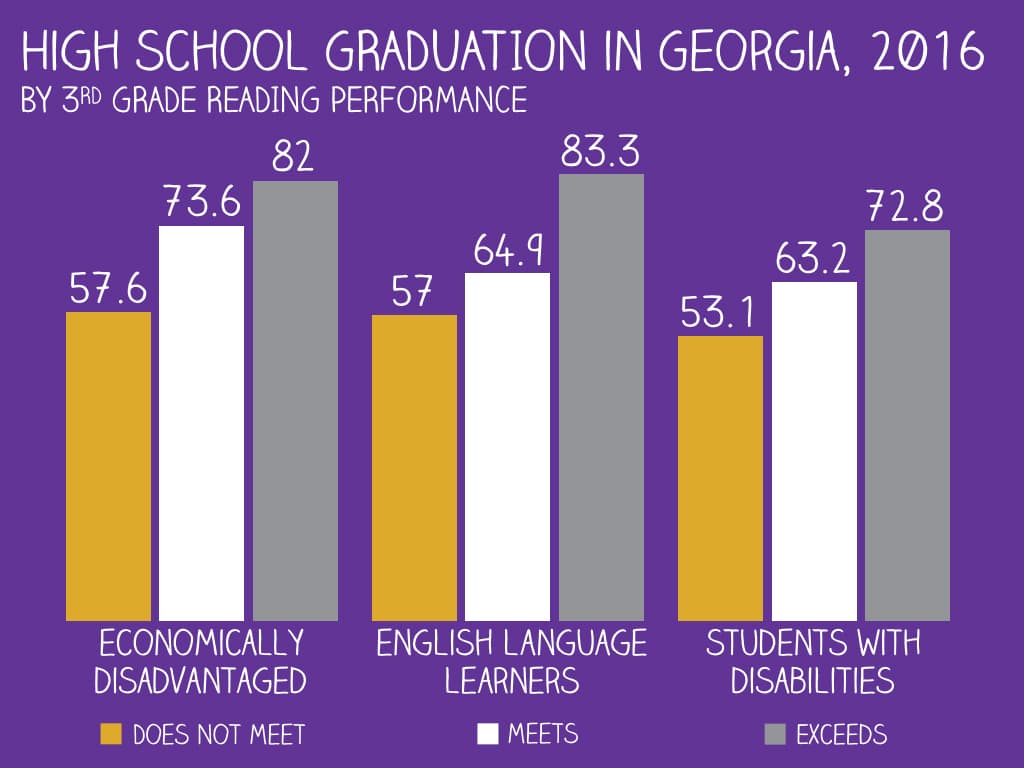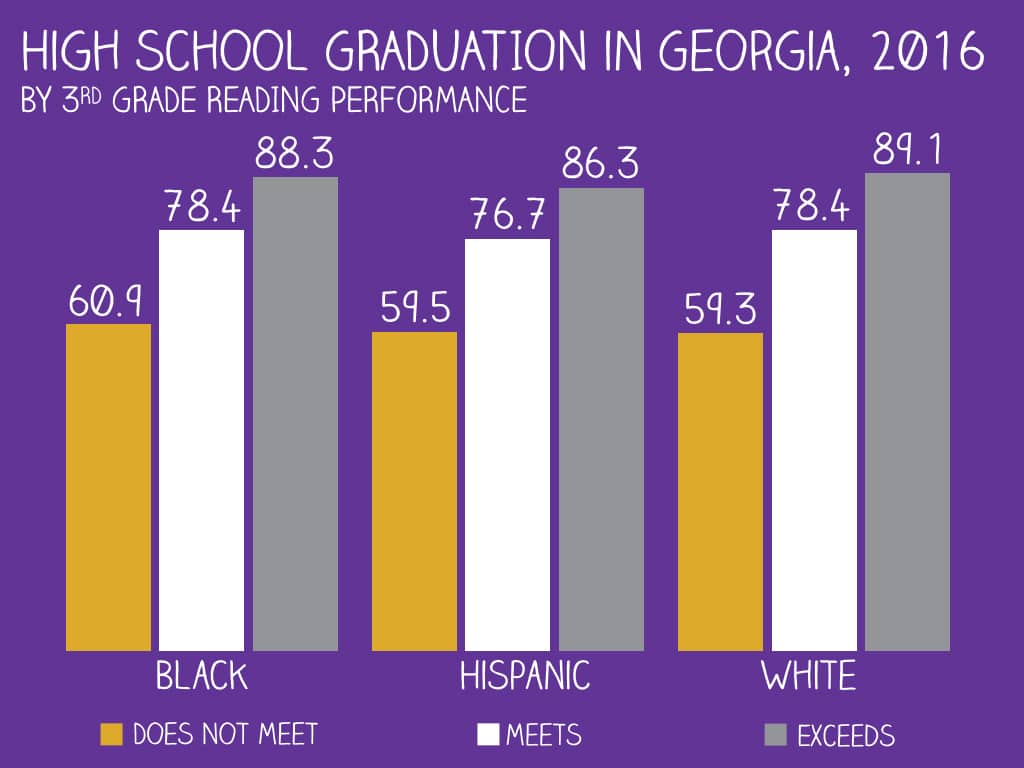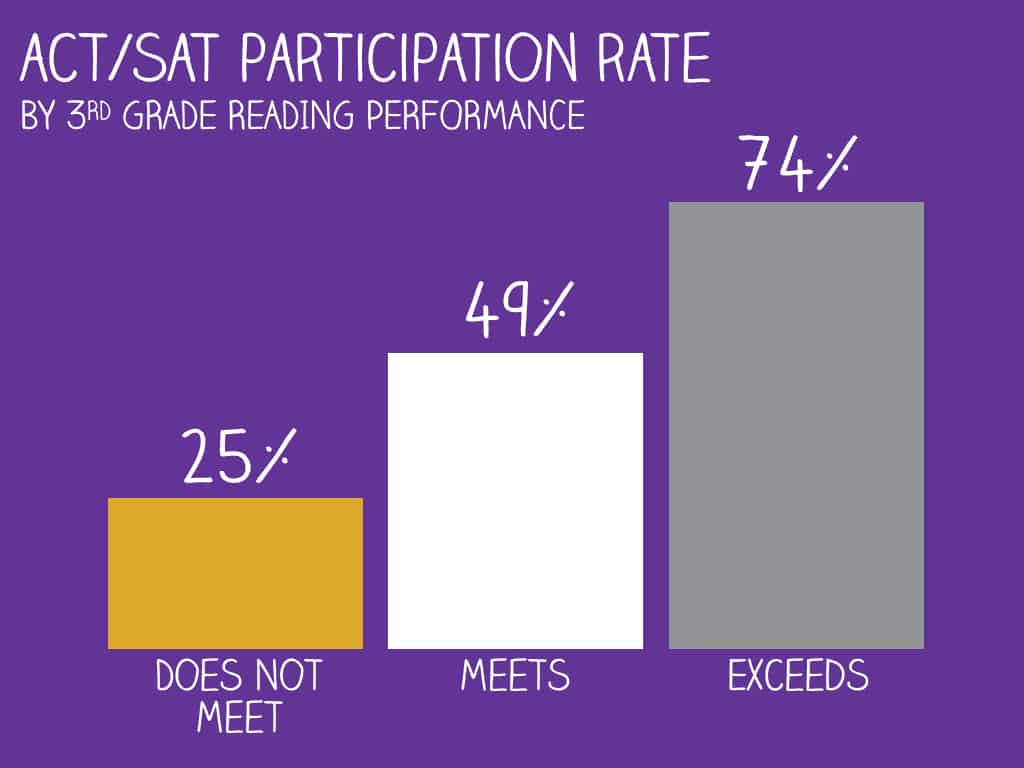Early Reading Proficiency: The Great Equalizer

The Governor’s Office of Student Achievement (GOSA) recently released a study that explores the correlation between third-grade reading proficiency and future academic achievement. The results represent a call to action for all those who care about children, education, communities, businesses, and the state’s economy to work together to create the necessary conditions for all kids to meet this early marker on a pathway to improved quality of life.
“This study uses Georgia data to confirm what national research has shown about the importance of being a proficient reader by the third grade,” said Georgia Partnership for Excellence in Education Policy and Research Director Dana Rickman. “Investments in early learning and literacy not only play a foundational role in future educational success of individual students—increased graduation rates and postsecondary participation—but also contribute directly to Georgia’s economic future.

Nearly nine in 10 students who exceeded expectations on the third-grade reading CRCT graduated from high school nine years later, while only six in 10 students who didn’t meet these expectations graduated. The Bureau of Labor Statistics Weekly Earnings Report from Jan. 2017 shows that full-time workers age 25 and older without a high-school diploma earned $9,308 less per year than those with a high-school diploma and no college education—and $39,052 less annually than those holding at least a bachelor’s degree.
This means that reading proficiently by third grade isn’t just important for children. It’s consequential for all Georgians. A thriving state economy is built upon a strong, educated workforce and tax base—and that building begins at birth. Early language exposure sets the foundation for cognitive ability, literacy, and school readiness—and it’s the strongest predictor of third-grade reading proficiency.

“The data analyzed in this report confirm the positive relationship between a student being able to read on level by the end of third grade and that student graduating from high school well-prepared to pursue a postsecondary credential,” said GOSA Executive Director Martha Ann Todd. “It will be very interesting to continue this analysis over the next few years to look at the relationship between third-grade reading, postsecondary credential attainment, and workforce participation in Georgia for this cohort of students.”
The study, which followed a cohort of third graders for nearly a decade, finds that students who earned higher scores on the third-grade reading CRCT not only had higher high-school graduation rates, but were also more likely to take the ACT or SAT and had higher average ACT and SAT scores compared to students in the other performance levels. These results were consistent regardless of student race/ethnicity, gender, poverty, ELL status, and disability status.

“Research on the long-term impact of third-grade reading proficiency on later academic outcomes is a clarion call to educators, parents, and others that the development of early reading proficiency is the great equalizer,” said Deputy Superintendent of Policy and External Affairs at the Georgia Department of Education Garry McGiboney. “Regardless of a student’s situation or station in life, if he or she learns to read proficiently by the third grade, the student will graduate from high school. So, it could also be said without exaggeration that learning to read proficiently is a quality-of-life skill.”
